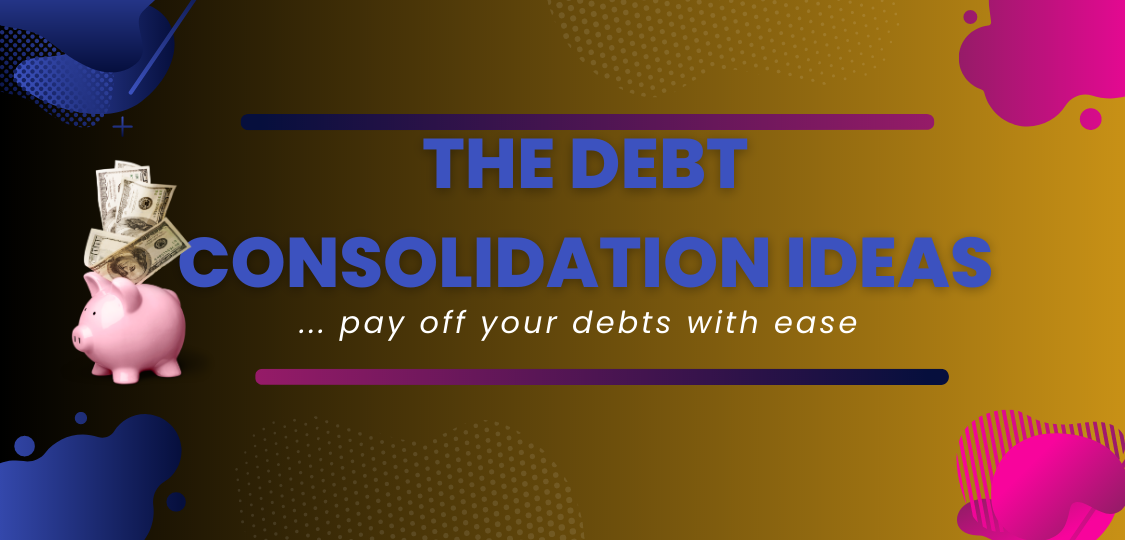Debt can feel like an anchor, holding you back from achieving your financial goals and dreams. However, with the right strategies and mindset, you can break free from the shackles of debt and pave your way to financial liberation. In this comprehensive guide, we will explore the various aspects of managing and overcoming debt, providing you with actionable steps to regain control of your finances.
Understanding the Debt Landscape
Before embarking on your journey towards financial liberation, it's essential to gain a comprehensive understanding of the debt landscape. Debt comes in various forms, including credit card debt, student loans, mortgages, and personal loans. Each type of debt has its terms, interest rates, and repayment schedules, which necessitates a tailored approach to tackling them.
Assessing Your Debt
The first step in breaking free from debt is assessing your current financial situation. Create a detailed list of all your debts, including the principal amount, interest rates, and minimum monthly payments. This overview will provide you with a clear picture of your debt burden and help prioritize which debts to tackle first.
Creating a Budget
A well-structured budget is your roadmap to financial freedom. Calculate your monthly income and allocate specific amounts to essential expenses such as housing, utilities, groceries, and transportation. Dedicate a portion of your income to debt repayment while also setting aside funds for savings and emergencies. A budget helps you live within your means and prevents accumulating more debt.
The Power of Mindset
Breaking free from debt requires a shift in mindset. Instead of viewing debt as a constant burden, consider it a temporary challenge on your path to financial liberation.
Cultivating Financial Discipline
Financial discipline is the cornerstone of debt management. It involves making conscious choices to prioritize needs over wants and to delay immediate gratification for long-term benefits. Avoid impulsive purchases and unnecessary expenses, redirecting those funds toward debt repayment.
Setting Realistic Goals
Setting achievable financial goals is essential for staying motivated. Break down your larger goal of becoming debt-free into smaller milestones. Celebrate each milestone you achieve, reinforcing your commitment to the journey.
Strategizing Debt Repayment
Once you've established a solid foundation with a clear understanding and the right mindset, it's time to delve into effective debt repayment strategies.
The Snowball Method
The snowball method involves prioritizing your debts from smallest to largest balances. Make minimum payments on all debts except the smallest one. Allocate extra funds to the smallest debt until it's paid off. Once that debt is cleared, roll over the amount you were paying into the next smallest debt. This approach creates a snowball effect, gathering momentum as you pay off each debt.
The Avalanche Method
Contrary to the snowball method, the avalanche method prioritizes debts based on interest rates. Start by paying off the debt with the highest interest rate while making minimum payments on others. Once the highest-interest debt is settled, move on to the next one. This strategy minimizes the overall interest paid over time.
Debt Consolidation
Debt consolidation involves combining multiple high-interest debts into a single loan with a lower interest rate. This approach simplifies repayment by having only one monthly payment. However, it's essential to research and choose a reputable consolidation option to avoid falling into further financial pitfalls.
Increasing Your Income
Supplementing your current income can significantly accelerate your debt repayment journey.
Exploring Additional Income Streams
Consider side gigs, freelancing, or a part-time job to increase your monthly earnings. Direct the extra income toward debt repayment to expedite the process.
Upskilling and Education
Investing in education or learning new skills can open doors to higher-paying opportunities. Explore online courses, workshops, or certifications to enhance your qualifications and potentially secure a more lucrative job.
Navigating Financial Challenges
On your path to financial liberation, you may encounter unexpected challenges that could temporarily disrupt your progress.
Emergency Fund
An emergency fund serves as a safety net during unexpected financial setbacks. Aim to save three to six months' worth of living expenses in a separate account. This fund can cover unexpected medical expenses, car repairs, or job loss without derailing your debt repayment plan.
Seeking Professional Guidance
If your debt situation is complex or overwhelming, seeking guidance from financial advisors or credit counseling agencies can provide valuable insights and strategies tailored to your circumstances.
Maintaining Financial Freedom
Breaking free from debt is a significant accomplishment, but maintaining financial freedom requires ongoing diligence.
Staying Debt-Free
After paying off your debts, continue practicing the financial discipline and budgeting skills you've developed. Avoid falling back into old spending habits that could lead to new debt.
Building Wealth
With your debts under control, shift your focus toward building wealth. Invest in retirement accounts, stocks, bonds, or real estate to secure your financial future and work towards achieving long-term financial goals.
Conclusion
Breaking free from debt is a transformative journey that empowers you to regain control of your financial life. By understanding your debt, cultivating a positive mindset, employing effective repayment strategies, and making conscious financial decisions, you can achieve true financial liberation. Remember that each step you take brings you closer to a future of security, abundance, and peace of mind. Embrace the process, stay committed to your goals, and celebrate your progress along the way. Your path to financial liberation starts now.


.png)